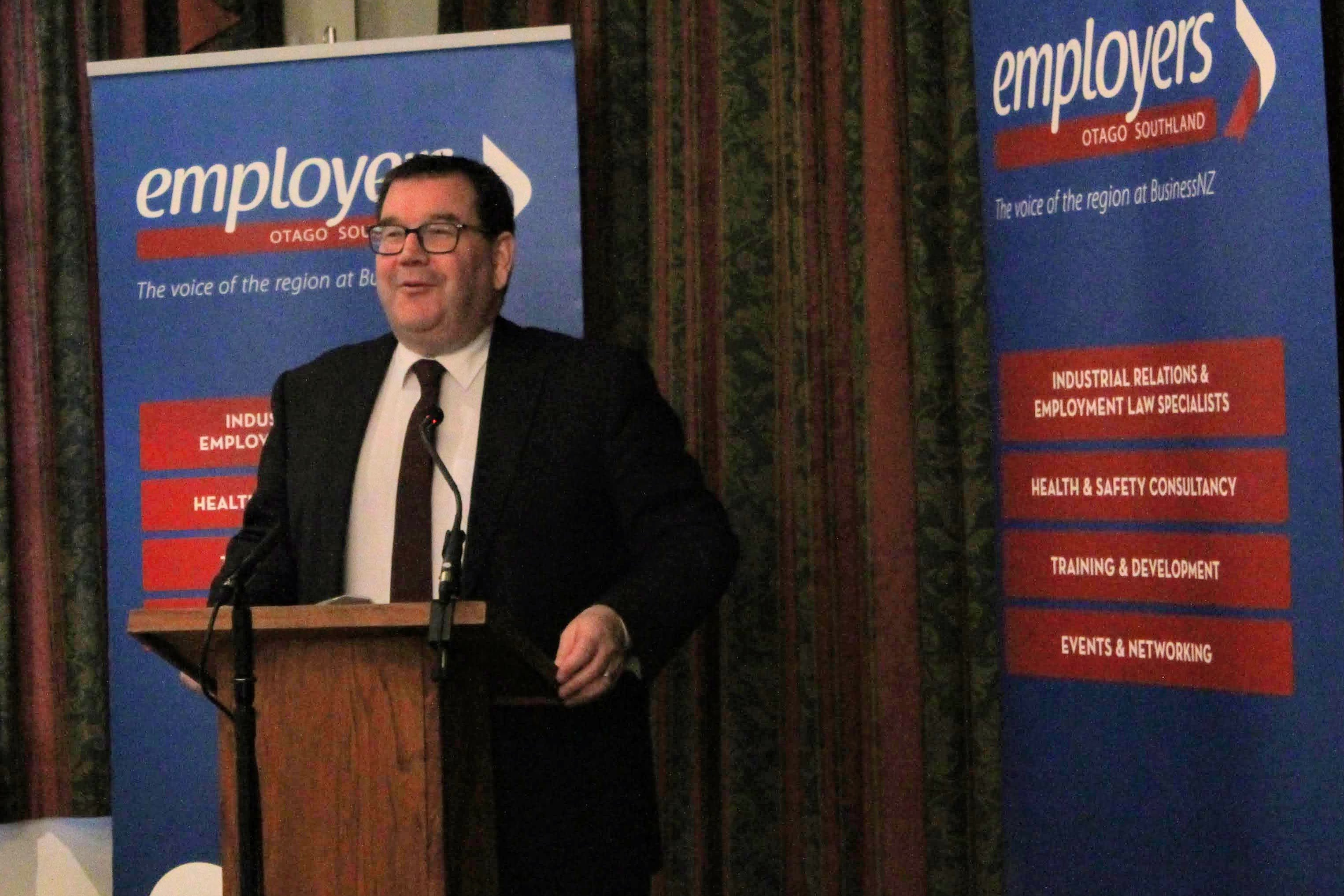

This was Mr Robertson’s second visit to Southland in recent weeks, the first coming in mid-July, days after the announcement that the Tiwai Point aluminium smelter was to close.
At that time, Mr Robertson and Prime Minister Jacinda Ardern were at pains to stress that the Government would do all it could to help Southland adapt to life without the smelter.
Mr Robertson’s rapid return was a physical manifestation of that, even if his trip may have had an ulterior motive — he is a very, very keen minister of sport and recreation, and the netball championship final was in Invercargill the day before.
Monday is Cabinet day, and it is very rare for the Minister of Finance not to be in attendance — particularly when that day Cabinet was to make decisions on the Covid-19 alert levels, a matter with enormous economic implications.
The finance minister — who used Zoom to "attend" Cabinet — had little of note to tell his business audience at breakfast, so the trip may have been more symbolic than substantial.
Possibly the real work was done post-bacon and eggs, at a follow-up meeting with Southland leaders to discuss economic opportunities post-smelter.
Mr Robertson, who had earlier said he was in Southland to "engage constructively", said after that meeting that it had been, well, constructive.
Local mayors and business leaders want the smelter kept ticking over for at least three years to allow new industries to develop or existing businesses to expand, so as to absorb the large number of direct and indirect jobs to be lost when Tiwai Point closes.
The Government, which is in negotiations with smelter owners Rio Tinto about its exit strategy and the timing thereof, cannot be so dogmatic.
Rather, Mr Robertson said the Government was in (here comes that word again) constructive talks with the company and that they were ongoing.
Mr Robertson knew the smelter would be uppermost in the mind of his audience and sought to defang that lion at the outset, saying talks were ongoing to ensure a "managed exit".
That there is any talk of exit at all is an issue: Labour’s coalition partner New Zealand First, for one, is adamant the plant should be saved from closure.
While Mr Robertson has been careful to avoid talk of salvation, he has been keen to play up "just transition", the process used by the Government to cushion the blow from the loss of high-paying oil and gas jobs in Taranaki.
The Government wants to see areas such as aquaculture greatly expand, and it also has everything crossed that the previously buoyant tourism and fee-paying student sectors bounce back after the damage wreaked by Covid-19.
Mr Robertson cleverly localised the Government’s pandemic response for his audience, telling them the small business cash flow scheme had seen $22million paid out to Southland firms, with the wage subsidy scheme available on top of that.
Unfortunately, that also served as a reminder that businesses are in a world of hurt already, that day’s continuation of the Covid-19 alert levels meant there was more to come, and all that with the smelter closure still looming on the horizon.
The Government is on a hiding to nothing on this one: the closure of the smelter has been long predicted; it just happens to have occurred on its watch.
Although the Invercargill electorate was likely out of range for it to win this election, those slim chances will have faded still further with Rio Tinto’s imminent departure, even if it is due to circumstances beyond government control such as the world aluminium price.
Constructive is all very well as it goes, and fair-minded people will accept that Covid-19 is the Government’s priority right now.
But for Southland, Tiwai is its big issue and it would like to see something concrete emerging from all the talking.

Non-hostile non-takeover
Speaking of Invercargill, Ms Ardern was somewhat surprised this week to be asked by Newstalk ZB’s Mike Hosking if the Government intended to take over the Invercargill City Council.
The Department of Internal Affairs had been in touch with the warring local authority to offer assistance, a move which does not automatically mean the Minister for Local Government will end up intervening to sort the situation out.
Ms Ardern termed the suggestion "ridiculous".
Old school, new school
Technology and Covid-19 mean this is an election campaign like no other, with Judith Collins Zooming in this week to give National volunteers in Taieri a pep talk.
Ms Collins also did some old-fashioned campaigning in the South this week though, with a trip to Invercargill yesterday.
National has been very busy south of the Waitaki in recent days, with Barbara Kuriger, Tim van de Molen, Paul Goldsmith and now Ms Collins all campaigning here.
It’s a date
Waitaki MP Jacqui Dean has taken up independent candidate Daniel Shand’s offer of a debate at the Cardrona Hotel on September 19, made in this column last week.
"Sounds great to me," Mrs Dean said.
"See you then and make mine a shandy."













